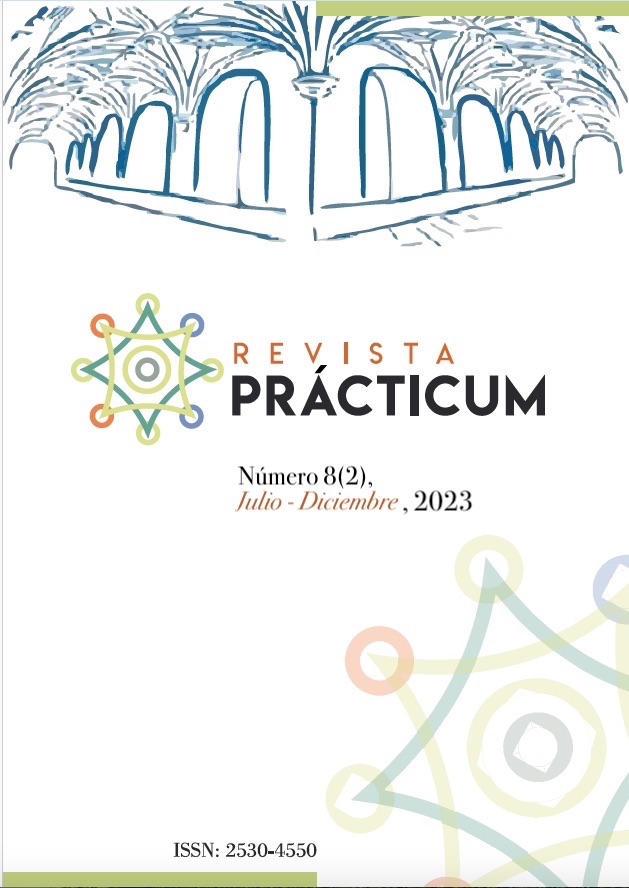Comprehensive analysis of externships: Tutor and student perspective
DOI:
https://doi.org/10.24310/rep.8.2.2023.17670Keywords:
Satifaction, Training, Compentences, Surveys, Evaluation reportAbstract
The formative nature of external placements and their contribution to improving the employability of students make it essential to know how they are developed. This work focuses on analysing the external placements of a double degree taught during the 2015-2016 to 2021-2022. The purpose of this analysis is to extract relevant information from the surveys of company tutors and students to find out how external placements are carried out. The analysis of the surveys, over academic years, allows us to contrast two complementary sources of information, as well as providing a temporal analysis of the development of external placements. The statistical exploitation of the surveys allows us to know, among other things, the degree of satisfaction, the level of competence achieved by the students and the degree of labour market insertion. This knowledge enables the Placement Committee to influence those aspects of the external placements that can be improved.
Downloads
Metrics
References
ANECA (2009). Los procesos de inserción laboral de los titulados universitarios en España. Factores de facilitación y de obstaculización. Madrid: ANECA.
Anjum, S. (2020). Impact of internship programs on professional and personal development of business students: a case study from Pakistan, Future Business Journal, 6, https://doi.org/10.1186/s43093-019-0007-3.
Blaikie, N.W.H. (1991). A critique of the use of triangulation in social research. Quality and Quantity, 25, 115-136.
Ballesteros Velázquez, B., Manzano Soto, N. y Moriano, J.A. (2001). Seguimiento y evaluación en la UNED del sistema de prácticas de los alumnos en empresa, RELIEVE, 7(1), 3-21.
Cohen, L. & Manion, L. (1990). Métodos de investigación educativa. Madrid: La Muralla.
Denzin, N.K. (1989). Strategies of Multipl Triangulation. The Resarch Act: A theoretical introduction to sociological methods. New York: McGraw Hill.
De La Vega, A. y Arakaki, M. (2011). Las prácticas profesionales en la formación en Ciencias de la Información: el caso de la Pontificia Universidad Católica del Perú (PUCP), Revista Interamericana de Bibliotecología, 34(1), 77-86.
Di Meglio, G. (2019). El impacto de las prácticas en empresas en la inserción laboral: Un análisis aplicado a los grados de Economía y Administración y Dirección de Empresas, Educación XX1, 22(2), 235-266.
Fachelli, S. y Toboso, E.F. (2021). The value of univerty internships, Estudios sobre educación, 40, 127-148.
Fernández Cuesta, C. (2001). Las prácticas en empresas: análisis económico de una realidad transdisciplinar”. Encuentros disciplinares, 3(9), 32-43.
Gordon, J. (1989). The role of the practicum in Library Schools, Journal of Education for Library and Information Science, 30(1), 19-27.
Hevia, I. (2009). El Prácticum en los estudios de pedagogía de la Universidad de Oviedo. Estudio empírico desde la perspectiva de sus protagonistas: alumnado, tutores y profesorado, Tesis Doctoral. Universidad de Oviedo, España.
Jogan, S.N. (2019). Evaluating the Effectiveness of a school Internship, International Journal for Social Studies, 5(2), 227-235.
Mareque Álvarez-Santullano, M. y De Prada Creo, E. (2018). Evaluación de las competencias profesionales a través de las prácticas externas: incidencia en la creatividad. Revista de Investigación Educativa 36(1), 203-219.
Mayorga Fernández, M.J., Sepúlveda Ruiz, M.P., Madrid Vivar, D. & Gallardo Gil, M. (2017). Grado de satisfacción y utilidad profesional de las prácticas externas del alumnado de la Facultad de Ciencias de la Educación de la Universidad de Málaga (España), Perfiles educativos, 39(157), 140-159.
Peña, T., Castellano, Y., Díaz, D. y Padrón, W. (2016). Las prácticas profesionales como potenciadoras del perfil de egreso, Paradigma, XXXVII(1), 211-230.
Rodriguez Sabiote, C., Pozo Llorente, T. y Gutiérrez Pérez, J. (2006). La triangulación analítica como recurso para la validación de estudios de encuesta recurrentes e investigaciones de réplica en Educación Superior, RELIEVE. Revista Electrónica de Investigación y Evaluación Educativa, 12(2), 289-305.
Zabalza, M.A. (2011). El prácticum en la formación universitaria: el estado de la cuestión, Revista de Educación, No. 354, 21-43.
Zabalza, M.A. (2016). El Prácticum y las Prácticas en Empresas en la formación universitaria. Revista Practicum, 1(1), 1-23.

Downloads
Published
How to Cite
Issue
Section
License
Copyright (c) 2023 Paz Rico-Belda (Autor/a)

This work is licensed under a Creative Commons Attribution-NonCommercial-ShareAlike 4.0 International License.
Acceptance of the work implies that the author grants Revista Prácticum the exclusive rights to reproduce, distribute and sell his or her work worldwide, both in digital and paper formats, CD-ROM, etc.
Likewise, the authors shall grant Revista Prácticum the rights of dissemination, public communication on the Internet and IT networks, data buses, as well as any other portals or electronic devices for online consultation of its contents and extracts, under the conditions of the portal, repositories or databases where the work is stored.
Revista Prácticum allows authors to publish and disseminate their articles and works on their personal websites, research teams, institutional repositories and scientific databases. All this in accordance with the Creative Commons 4.0 License








8.png)








